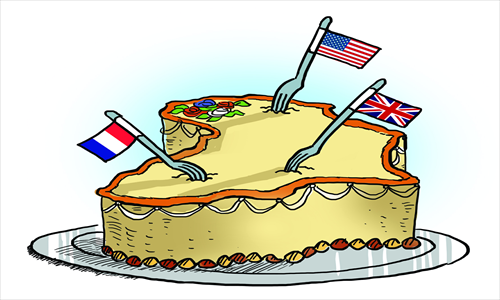Terrorism may be just excuse for Western powers in Africa

Mali may continue to be the epicenter of combat, death and French preoccupation for a foreseeable future.
This means risks to multinational businesses and foreigners, which could play out across North and West Africa. Perhaps it could spread southward to Central and East Africa, the core of Al Shabaab, an Al Qaeda-linked militia.
Mali's economic structure is based on agriculture and fishing. It has a limited number of multinational players save for a few who have invested in gold. But the French offensive will generate retaliation in the region.
While Algeria is the most vulnerable in this squabble, France could be the biggest sufferer.
Paris has extensive businesses and expatriate presence in the region. After weighing the long-term impact of the conflict to the welfare of its interests in the continent, the US and Britain have kept their troops off the frontline.
Some of the fragile nations where foreigners could find it more difficult to operate include Mauritania, Niger, Morocco and Nigeria.
Jihadists are also likely to target foreign-owned businesses in volatile Libya, which is recuperating from the Arab Spring hangover.
More worrying now is that the conflict could catalyze sectarian violence in Muslim-dominant northern Nigeria, where jihadist group Boko Haram has killed thousands of people since July 2009.
It is still a matter of debate whether the killer outfit has links to terror outfits outside Nigeria. But the US has in the past stated that the group likely allied to Al Qaeda in the Islamic Maghreb.
The economic and political impacts of the fight against Islamist militants in Mali will resonate far beyond the country's permeable borders.
The gruesome kidnapping and subsequent killing of 38 expatriates in BP's gas field in Algeria is testimony that the horizon is engulfed with horror.
This tragic event is already prompting oil companies to pull foreign workers out of the region. The Masked Brigade, the group that claims to have masterminded the invasion, has warned of more such attacks against any country backing France's involvement in Mali.
Beyond the human rights abuses, their retaliation will immensely discourage foreign investment and paralyze homegrown economies.
While the media has focused on the West, China could endure the heaviest burden in the ongoing intervention. The Asian nation has invested heavily in the region, and Beijing has been involved in diverse energy and infrastructural projects.
Fragile Nigeria recently accepted a $1.1 billion loan to construct railways and airport terminals. This is hoped to jump-start the economy and ease its near-constant security crisis.
Having foreseen the likely impact of the full-scale war, the world's second largest economy has called on the Mali government to protect Chinese nationals and their interests in view of the escalating conflict in the country.
China is experiencing a backlash in West Africa, just like in other parts of the continent. Its people and businesses in the oil-rich Niger Delta have been under constant attacks by the Movement for the Emancipation of the Niger Delta, one of the largest militant groups in Nigeria.
While there have been unanimous support for the intervention, there is a school of thought that the move is a PR gimmick by Western nations to protect their interests in Africa. In addition, the so-called fight against terrorism could be used as bait in capturing Africa's vast resources.
There is no doubt that the French action in its former colony is about energy security. The region is rich in uranium. This, indeed, could usher in another scramble for Africa, a move swiftly aimed at curtailing China's growing influence.
As witnessed in Somalia, Islamists cannot be ignored. The terrorists are unlikely to wane any time soon. They must be dealt with overwhelmingly but cautiously.
But it is only African solutions that can solve African problems. As the Mali intervention goes on, the international community should rethink their plans in solving conflicts in the continent. It would be tragic to see Afghanistan repeated in West Africa.
The author is a journalist on African issues based in Nairobi, Kenya. mkapchanga@gmail.com